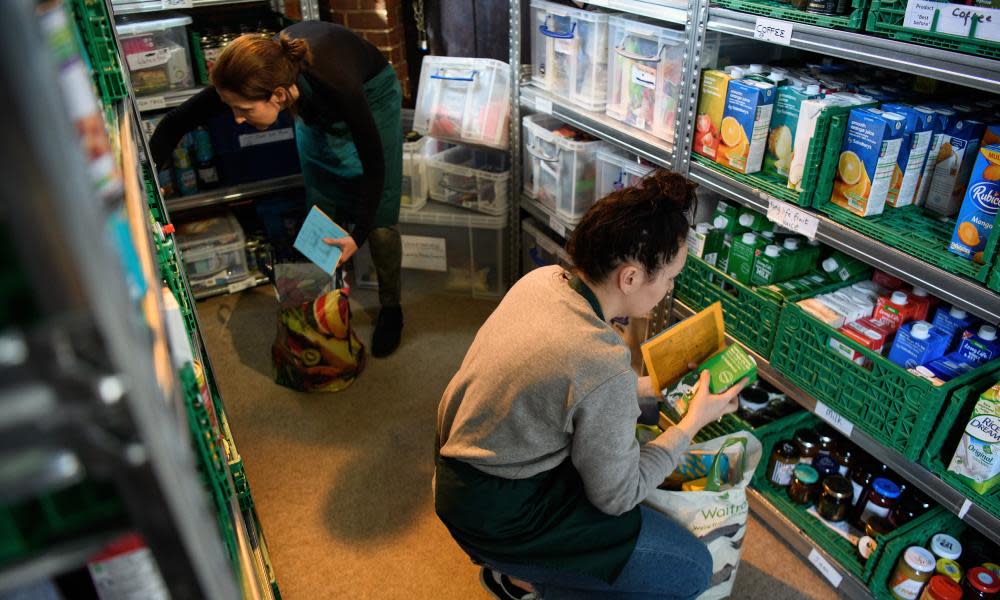Welfare spending for UK's poorest shrinks by £37bn

Spending on welfare benefits for the UK’s poorest families will have shrunk by nearly a quarter after a decade of austerity, according to new figures highlighting the plunge in living standards experienced by the worst-off.
By 2021, £37bn less will be spent on working-age social security compared with 2010, despite rising prices and living costs, according to estimates produced by the House of Commons library.
The figures, obtained by the Labour MP Frank Field, show that just under half the total savings will come from the freezing of most working-age benefit levels since 2016, a policy which will deliver cuts of nearly £16bn.
Some of the most striking cuts are in disability benefits – personal independence payments (PIP) and employment and support allowance (ESA) – which together will have shrunk by nearly £5bn, or by 10%, since the start of the decade.
A new measurement of UK poverty published last week by the Social Metrics Commission highlighted that more than half of families living below the breadline contained at least one person with a disability.
Other cuts include: tax credits (£4.6bn), universal credit (£3.6bn), child benefit (£3.4bn), disability benefits (£2.8bn), ESA and incapacity benefit (£2bn) and housing benefit (£2.3bn). By contrast, spending on the state pension will be £1.7bn higher by 2021.
Field said the benefit cuts were behind increases in food bank use and destitution. He said: “A £37bn attack has been mounted on the living standards of many of our fellow citizens to such an extent that possibly millions struggle to keep on top of their rent, pay the bills and buy adequate food.
“Likewise, an unknown number are unable to clothe their children properly before sending them to school where all too many of these children not only rely on free school dinners as a cornerstone of their diet, but on breakfast and supper clubs as well.”
The reductions in benefit spending come during a period when costs have risen for the poorest families, leaving them using a disproportionately high share of their income on housing, fuel, food and childcare.
Field called on the shadow chancellor, John McDonnell, to commit Labour to reversing cuts to working age benefits.
The chief executive of the Child Poverty Action Group, Alison Garnham, said: “Cuts and freezes have taken family budgets to the bone as costs rise and there is more pain to come as the two-child limit for tax credits and universal credit, the bedroom tax, the benefit cap and the rollout of universal credit push families deeper into poverty.”
A government spokesperson said: “We want our welfare system to provide a strong safety net while being fair and sustainable for the future. That’s why we spend around £90bn a year helping those that need it, including people out of work or on a low income.
“But we are also committed to supporting people into work – the best way to lift people out of poverty. Since 2010, we have seen over 3 million more people find work and the number of workless households is at the lowest level since comparable records began.”

 Yahoo News
Yahoo News 
